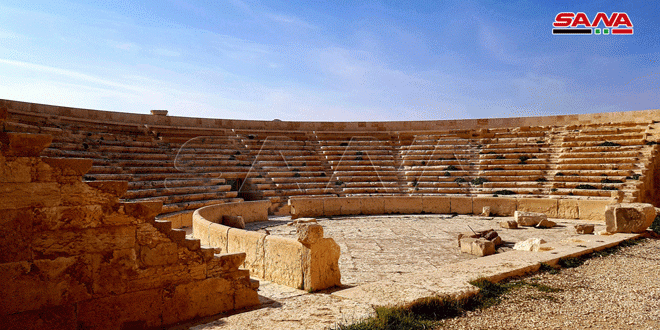In a lecture titled “Palmyra, the Pearl of the Orient and the Immortal Legacy”, Syrian researcher Jamil Al-Qayyem highlighted the importance of the Syrian historical city of Palmyra as a cultural center that has qualified it to be the capital of humanity and peace.
In his lecture, Al-Qayyim talked about the factors that led to the prosperity of Palmyra, most prominent of which was the diversion of the global trade route to the Silk Road, which made this city a meeting place for goods and commercial convoys.
Part of Al-Qayyem’s lecture shed light on the city’s freedom of religion reflected in the large number of temples, noting the existence of several gods in the city evidenced by the available antiquities and temples in this area.
The researcher talked about the democracy and political freedom that prevailed in Palmyra as well as the system that ruled the city, pointing out that the people enjoyed equal rights and duties, a situation that created a state of stability and peace that was reflected in all aspects of the Palmyrenes’ life.
Al-Qayyem also threw light on the most important archeological monuments in Palmyra, including Temples of Bel, Baalshamin and Nebo, the Arch of Triumph, the archeological baths which date back to the era when the city was prosperous and Palmyra’s theater which was built in the 2nd century A.C . and which contained a stage and several niches.
The researcher also shed light on the city’s water resources, like the sulfur spring that irrigated Palmyra’s orchards in the northeast of the Arch of Triumph.
Jamil Al-Qayyem was born in 1969 in Palmyra. He made more than 20 scientific, economic and educational research works.
Hamda Mustafa

